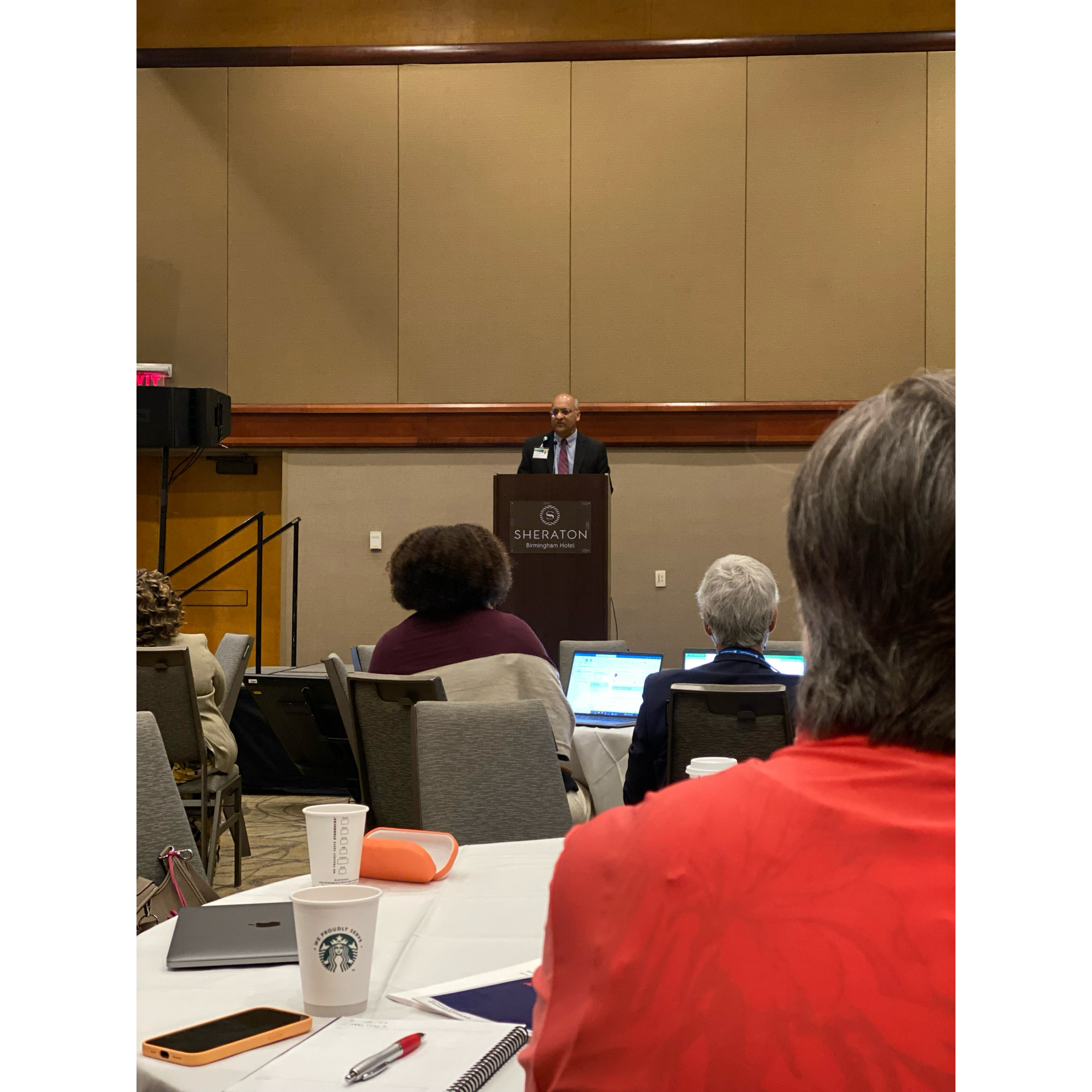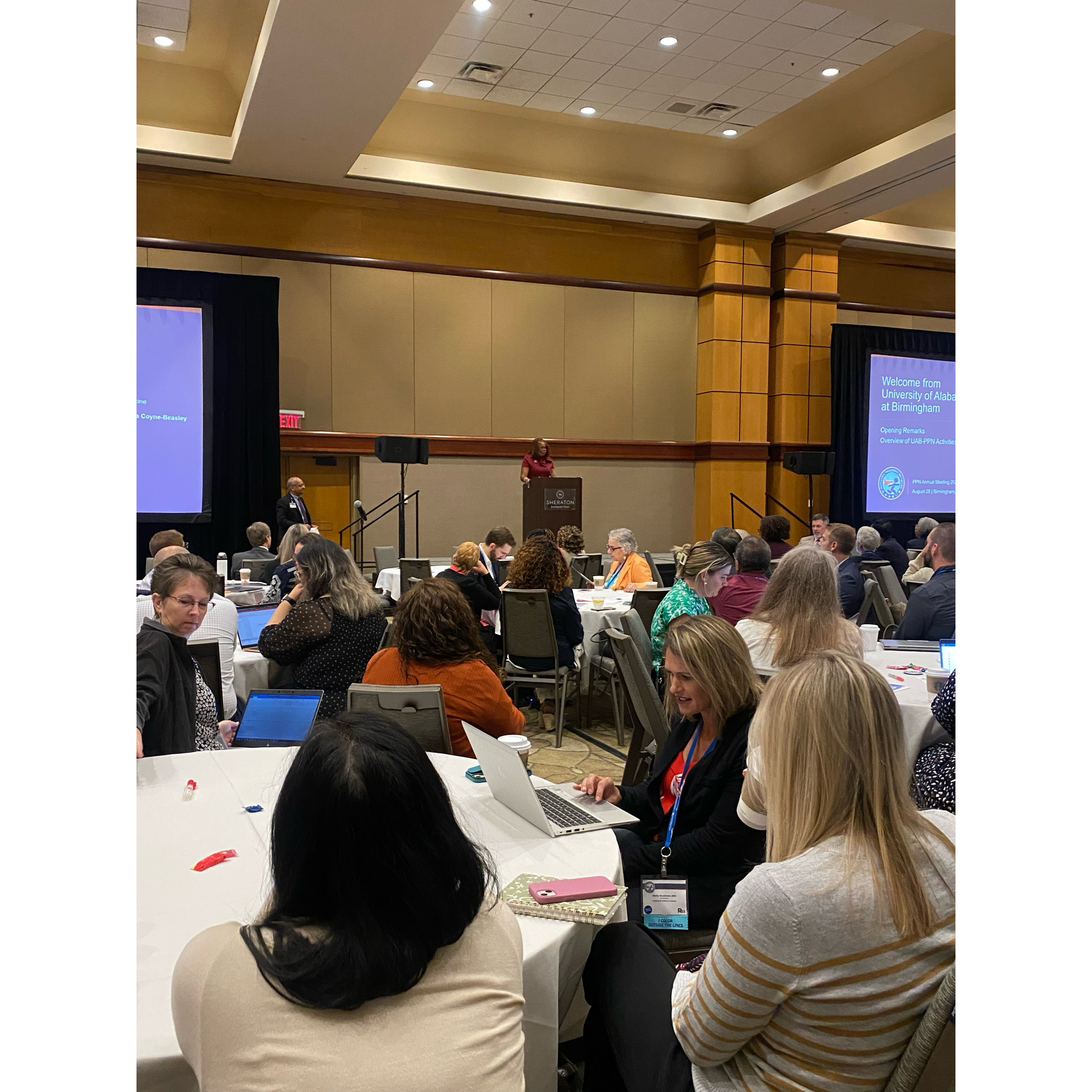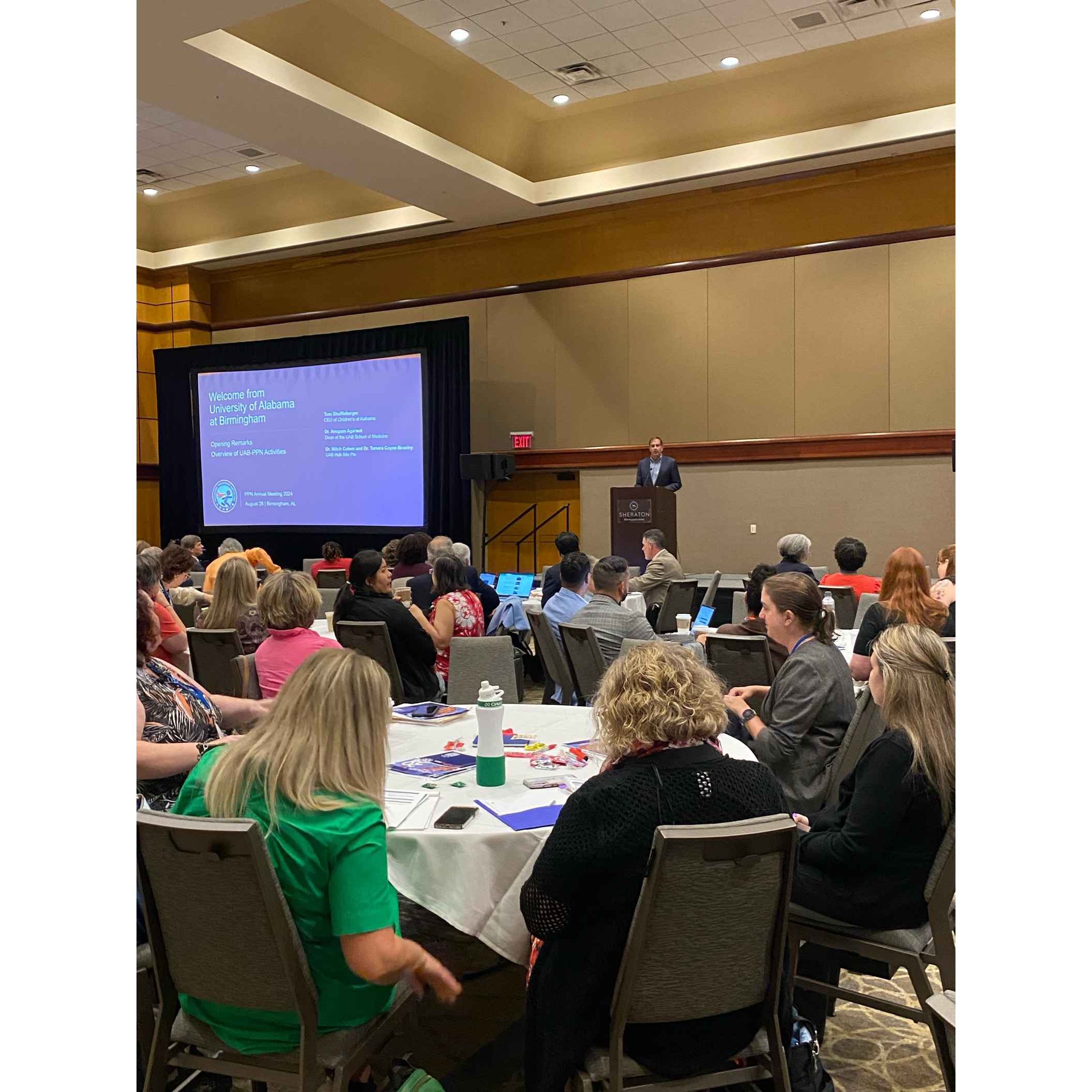The Pediatric Pandemic Network (PPN) held its annual meeting in Birmingham from Aug. 27 to 29. The PPN seeks to enhance the nation's preparedness to address public health emergencies that affect children. The network, funded by the Health Resources and Services Administration (HRSA), joins leading pediatric hospitals and partners to focus on pediatric preparedness and treatment in emergencies and disasters. Its goals are to improve collaboration between healthcare systems, create and share best practices, and increase preparedness. The UAB/COA Hub site is lead by Drs. Tamera Coyne-Beasley and Mitchell Cohen.
During this year’s annual meeting, members gathered at the Sheraton Hotel in downtown Birmingham to discuss recent advancements in pediatric emergency medicine, strategies for improving physical and mental health during emergencies, and approaches to addressing and preventing health inequities in disasters.
The highlight of the conference was a dinner hosted at the Birmingham Civil Rights Institute, which included tours of the facility and a welcome speech from Odessa Woolfolk, civic activist and UAB Outstanding Faculty Alumni.
Michele Kong, M.D., professor in the Division of Pediatric Critical Care, presented how her nonprofit organization, KultureCity, in partnership with the PPN, is leading Birmingham and the nation in sensory accessibility. Dr. Kong presented her school and disaster preparedness timeline, which includes training 12 schools in the Birmingham area on a specific school disaster preparedness curriculum. The training focuses on equipping school staff and faculty with the tools and knowledge to best serve students in need. Staff are trained for several different scenarios and learn how to communicate effectively with students who have sensory processing impairments.s.
Chrystal Rutledge, M.D., associate professor in the Division of Pediatric Critical Care, discussed her initiative, the Children’s of Alabama Community Healthcare Education Simulation (COACHES) Program and how it partners with the PPN. The COACHES Program uses simulation in a structured environment to promote excellence in pediatric clinical care, patient safety, and education for all healthcare practitioners and care teams throughout Alabama. Since more than half of the children in Alabama live in medically underserved areas, it is vital to ensure that hospital emergency departments across the state are equipped to handle pediatric emergencies. This program has already reached 53 hospitals in Alabama, as well as some in Mississippi and Georgia. Dr. Rutledge and her team visit these hospitals, assess what simulations would provide the best training experiences, and assist in developing policies and gathering supplies. Their expertise is also shared with schools, EMS, and both outpatient and inpatient units.
Tamera Coyne-Beasley, M.D., professor in the Division of Adolescent Medicine, Gabriela Oates, M.D., associate professor in the Division of Pediatric Pulmonary and Sleep Medicine, along with Ariann Nassel from the School of Public Health and Dr. Elizabeth Baker from the Department of Sociology, presented The Mapping Project. This project aims at using geographic and social science for equitable emergency planning. Through this study, a ZIP code breakdown of Children's of Alabama's patient population distribution was created. It highlights important regions with high patient volume and high-usage. With an emphasis on rural areas, the team also looked at social vulnerability indicators to better identify the needs of underserved groups. Future strategic planning will be guided by the identification of key strengths and potential for service enhancement.
Heather Austin, M.D., associate professor in the Division of Adolescent Medicine and Mark Baker, M.D., professor in the Division of Pediatric Emergency Medicine, shared how they are implementing PsySTART (Psychological Simple Triage and Rapid Treatment), at UAB and Children’s of Alabama. This collaborative is focused on addressing the immense challenge of the youth mental health crisis through the use of psychological triage for trauma informed care in everyday emergencies and large-scale disasters. Drs. Austin and Baker have developed screeners, electronic medical record integration, and created a resource handout, in both English and Spanish. The resource includes information on normal physiological and emotional responses related to trauma experiences, encouragement regarding resiliency, when to seek professional mental health services, risk level indicated by screening, how parents can assist during this experience, and information regarding psychological first aid resources.
Dr. Coyne-Beasley lead the pre-meeting session for the R25 PPN Scholars on her Community Engaged Research in Disaster Science. She also also co-facilitated breakout groups on Engaging Parents and Caregivers in Your PPN Activities.


